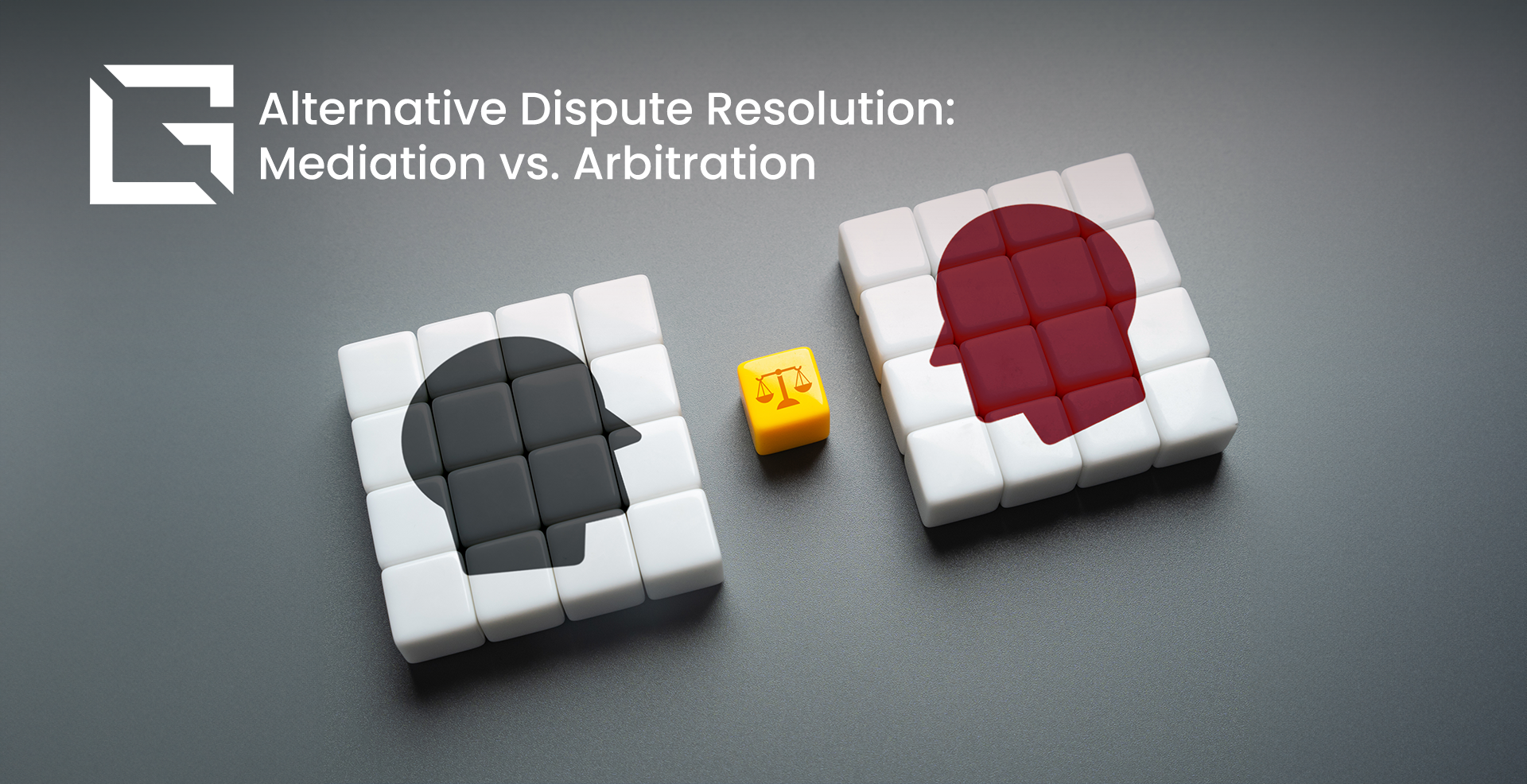John had always been a peacemaker. A disagreement with his business partner, however, had escalated into a full-blown dispute. The prospect of traditional litigation loomed large, casting a long shadow of uncertainty and financial burden. The endless paperwork, court appearances, and potential for a drawn-out legal battle filled him with dread. As he sat in his office, overwhelmed by the situation, John began to wonder if there was a more amicable and efficient way to resolve the conflict. Little did he know that the answer lay in Alternative Dispute Resolution.
This article explores the world of mediation and arbitration (more like Mediation vs Arbitration), offering insights into these two effective methods of dispute and conflict resolution.
P.S. – Gibb Law Firm is excited to announce the launch of an advanced new resource dedicated to Civil Litigation! Check out our press release to learn how we aim to streamline legal processes, ensuring that clients receive the most effective and informed representation in their civil cases.
When disputes arise, traditional litigation often seems like the only option. However, the legal landscape offers alternative paths to resolution through Alternative Dispute Resolution (ADR). Among the most common ADR methods are mediation and arbitration.
Mediation is a collaborative process involving a neutral third party. The mediator works to facilitate communication between disputing parties for conflict resolution. The goal is to reach a mutually agreeable solution. Mediation is often preferred for preserving relationships, as it fosters open dialogue and compromise. This approach can be particularly beneficial in cases involving family, business partners, opposing parties, or ongoing relationships. Moreover, mediation tends to be more cost-effective and time-efficient than litigation, offering a quicker resolution (more on that below).
In contrast, arbitration is a more formal process where an arbitrator or a panel makes a binding decision. It resembles a courtroom setting, with evidence presented and arguments made. Arbitration is often chosen for commercial or contractual disputes when parties desire a definitive outcome without the delays associated with litigation. While it may be less flexible than mediation, arbitration offers a clear and enforceable resolution.
Both mediation and arbitration have their advantages and disadvantages. Mediation excels at preserving relationships and fostering cooperation, while arbitration provides a clear and final decision. The choice between the two depends on the nature of the dispute, the desired outcome, and the relationship between the parties.
Advantages and Disadvantages of Mediation and Arbitration
Both mediation and arbitration offer unique benefits and drawbacks, making them suitable for different types of disputes. Understanding these can help parties make an informed decision on the best method to resolve their conflicts.
Mediation: Advantages
- Preservation of Relationships: Mediation excels at maintaining and even improving relationships between parties, as it encourages cooperation and mutual understanding.
- Flexibility and Control: Parties retain control over the outcome and can tailor the resolution to their specific needs and interests.
- Confidentiality: Mediation sessions are private, allowing for open and honest communication without fear of public disclosure.
- Cost-Effective: Mediation is generally less expensive than litigation or arbitration, as it typically involves fewer formal procedures and a shorter timeline.
- Speed: Benefits of Mediation include scheduling and conclusion relatively quicker compared to court proceedings or arbitration.
Mediation: Disadvantages
- Non-Binding: The agreements reached in mediation are not legally binding unless formalized in a contract, meaning parties may not comply with the terms.
- No Guarantee of Resolution: If parties cannot reach an agreement, the dispute may still end up in court, leading to additional costs and time.
- Lack of Formal Discovery: Mediation lacks the formal discovery process of litigation, which may limit the information available to both parties.
Arbitration: Advantages
- Finality: Arbitration provides a clear, binding decision that is enforceable in court, ensuring closure to the dispute.
- Expertise: Arbitrators are often chosen for their expertise in the relevant field, which can lead to more informed decisions.
- Speed and Efficiency: Arbitration can be faster than traditional litigation, with streamlined procedures and limited opportunities for appeals.
- Confidentiality: Like mediation, arbitration proceedings are private, protecting sensitive information from public exposure.
- Formal Procedure: Arbitration includes elements of a formal hearing, such as evidence presentation and witness testimonies, which can provide a structured resolution process.
Arbitration: Disadvantages
- Costs: While generally less expensive than litigation, arbitration can still be costly, particularly if a panel of arbitrators is required.
- Limited Appeal Rights: The binding nature of arbitration means there are very few opportunities to appeal the decision, even if one party believes it is unjust.
- Less Control: Unlike mediation, the parties have less control over the outcome, as the arbitrator(s) make the final decision.
- Formality: The procedural formality of arbitration can make it less flexible than mediation, potentially leading to a more adversarial process.
Choosing between mediation and arbitration depends on the specific needs and circumstances of the parties involved. Mediation is ideal for those seeking to maintain relationships and reach a mutually agreeable solution, while arbitration is better suited for parties needing a definitive, enforceable decision.
It’s crucial to consider factors such as the complexity of the dispute, the amount of money involved, and the urgency of the matter when deciding on the appropriate ADR program method. Additionally, the experience and reputation of the mediator or arbitrator are essential factors to consider.
Many contracts now include dispute resolution clauses specifying mediation or arbitration as a preferred method for resolving conflicts. This helps to streamline the process and avoid costly litigation. However, it’s important to understand the implications of such clauses before signing a contract.
While mediation and arbitration offer efficient alternatives to litigation, they are not suitable for all disputes. Complex legal issues or cases involving public interest may still require court intervention. Therefore, it’s essential to consult with an experienced attorney like Gibb Law Firm to determine the best course of action for your specific situation.
By understanding the nuances of mediation and arbitration, you can make informed decisions about how to resolve disputes effectively and efficiently. Whether you’re facing a personal or business conflict, exploring ADR options can save time, money, and emotional stress.
Disclaimer: This article provides general information and should not be considered legal advice. It is essential to consult with an attorney to address specific legal matters.



